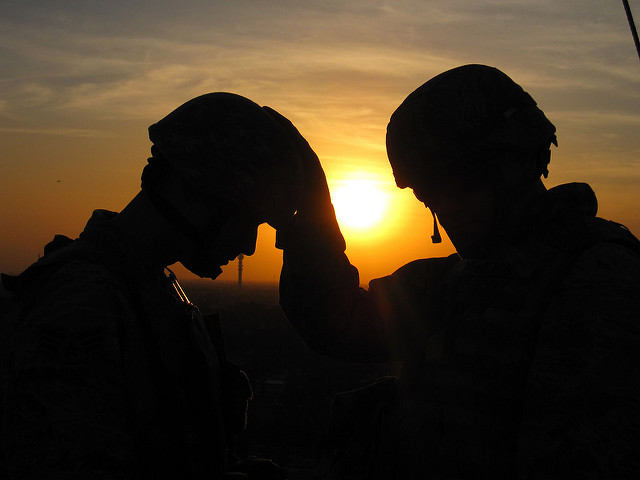
Why Does The U.S. Government Need Chaplains?
- By Derek Welch --
- 30 Apr 2018 --

Has This Controversial Post From History Run Its Course?
Since the beginning of the United States government, there have been chaplains. They have given prayers to our leaders and given faith to our troops during combat. But why do we have them? What function do they represent? And do we need them in the future?
Why Does The U.S. Government Need Chaplains?[/tweetthis]
Chaplains give spiritual guidance and perform religious rituals at official events. During the Revolutionary War, there were numerous chaplains in army units. George Washington called chaplains “men of character and good conversation … who will influence the manner of the corps both by precept and influence.” There has also been a chaplain for the House of Representatives and Senate since it’s inception.
It has not been a smooth history. James Madison openly spoke out against chaplains. During the 1850s the House and Senate did not have any chaplain because many politicians complained that the very concept violated the separation of church and state. Namely the Establishment Clause of the U.S. Constitution that bans the creation of an official religion by the U.S. government. Yet, the Supreme Court has ruled that chaplains do not violate the Establishment Clause.
In fact, the history of chaplains has been the justification for their continued existence. The Supreme Court argued that the long-standing history of the chaplain in the United States makes them part of the tradition of the military and government agencies. But when does meaningful change outweigh the need for traditions?
While the Department of Defense recognizes hundreds of religious denominations, it will only accept ones that believe in a higher power. So when a humanist tried to become a chaplain for the U.S. Navy, his application was denied. This is because Congress has passed a provision that forces religious organizations to have to host a chaplain, as long as they believe in a deity. Humanism was finally recognized as a religious group by all branches of the military in 2017.
This is a growing problem in the armed forces. Over 10,000 soldiers are listed as atheists, yet they do not have any representation. There are other countries, like the Netherlands, which regularly have atheist chaplains in their army. The difference seems to be the historic tradition of the United States.
Yet having a chaplain in one capacity does not eliminate the faith of another. There have been two Catholic chaplains for Congress, yet that does not produce the same controversy amongst other religious chaplains. There are Hindu, Muslim, and Buddhist chaplains for the United States government. With over one-quarter of the U.S. population declaring themselves atheist or non-believers, representation in chaplains should follow.


















